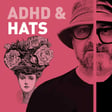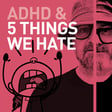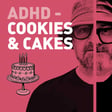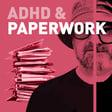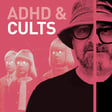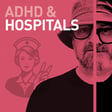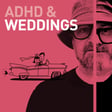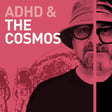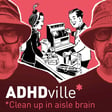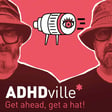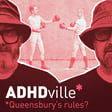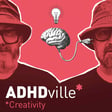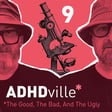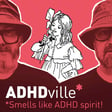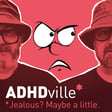
Episode 81 - The World Looks Different After ADHD. Right?
Ever felt like your brain runs on a different operating system? You’re not alone. Join us Martin (diagnosed in 2013) and Paul (late-diagnosed ADHD) as we explore the weird, wonderful, and wildly relatable realities of life after an ADHD diagnosis (official or self-diagnosed) - where suddenly, everything makes sense (and also… doesn’t).
In this episode, we unpack:
- ADHD sensory quirks (why your favorite spoon matters)
- Hypervigilance & emotional intelligence (reading rooms like a pro)
- The loneliness of unmasking and why diagnosis can feel like "ADHD on steroids"
- Neurodivergent burnout vs. "laziness" – spoiler: it’s not what you think
- Rejecting "normal" – why traditional productivity hacks fail ADHD brains
Whether you’re newly diagnosed, self-identifying, or just ADHD-curious, this is your invitation to ADHDville: a place where distractions are landmarks, detours are the main roads, and your brain isn’t broken! No really!
See our beautiful faces on YouTube
Put quill to paper and send us an email at: ADHDville@gmail.com
ADHD/Focus music from Martin (AKA Thinking Fish)
Theme music was written by Freddie Philips and played by Martin West. All other music by Martin West.
Please remember: This is an entertainment podcast about ADHD and does not substitute for individualized advice from qualified health professionals.
